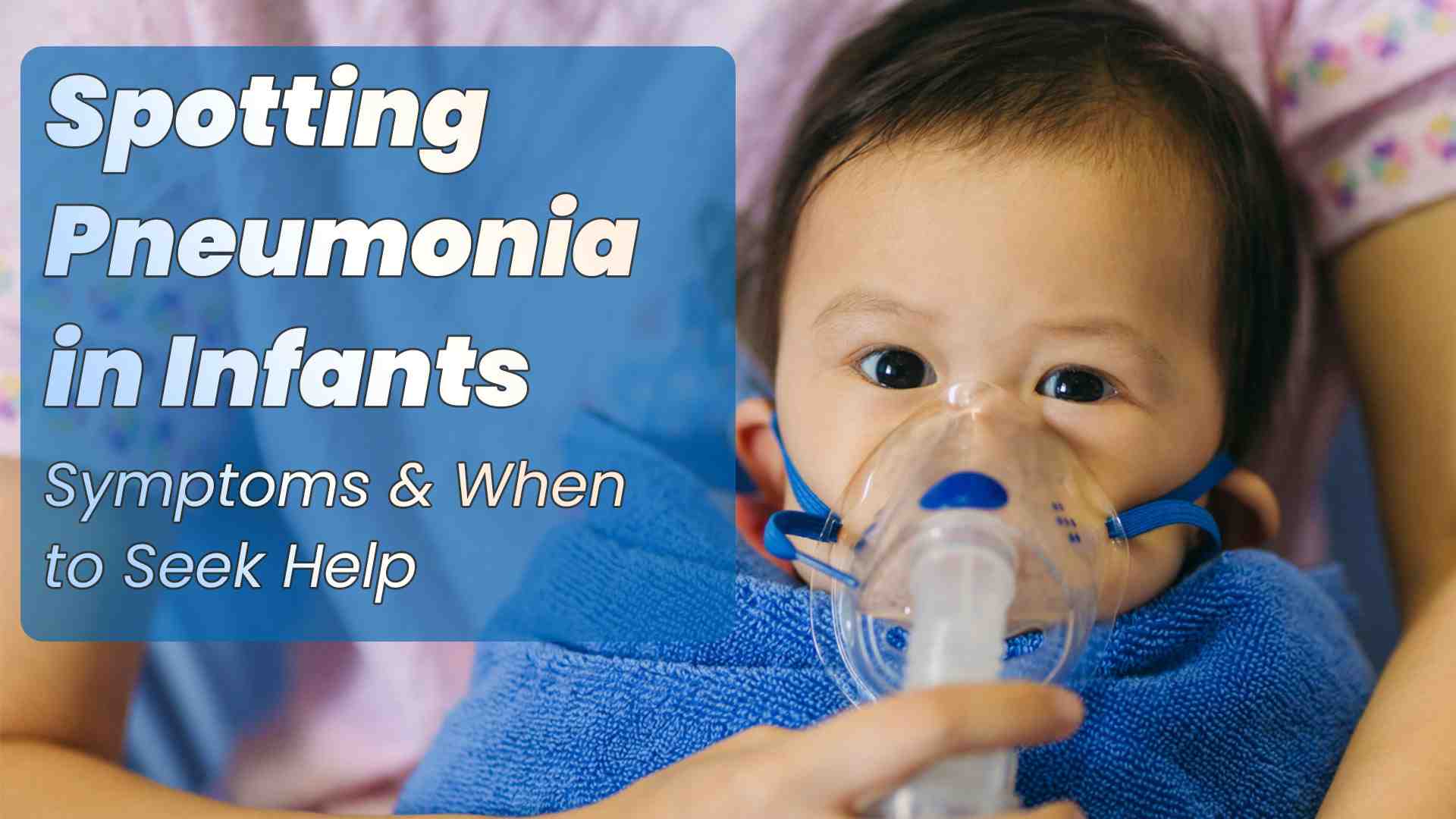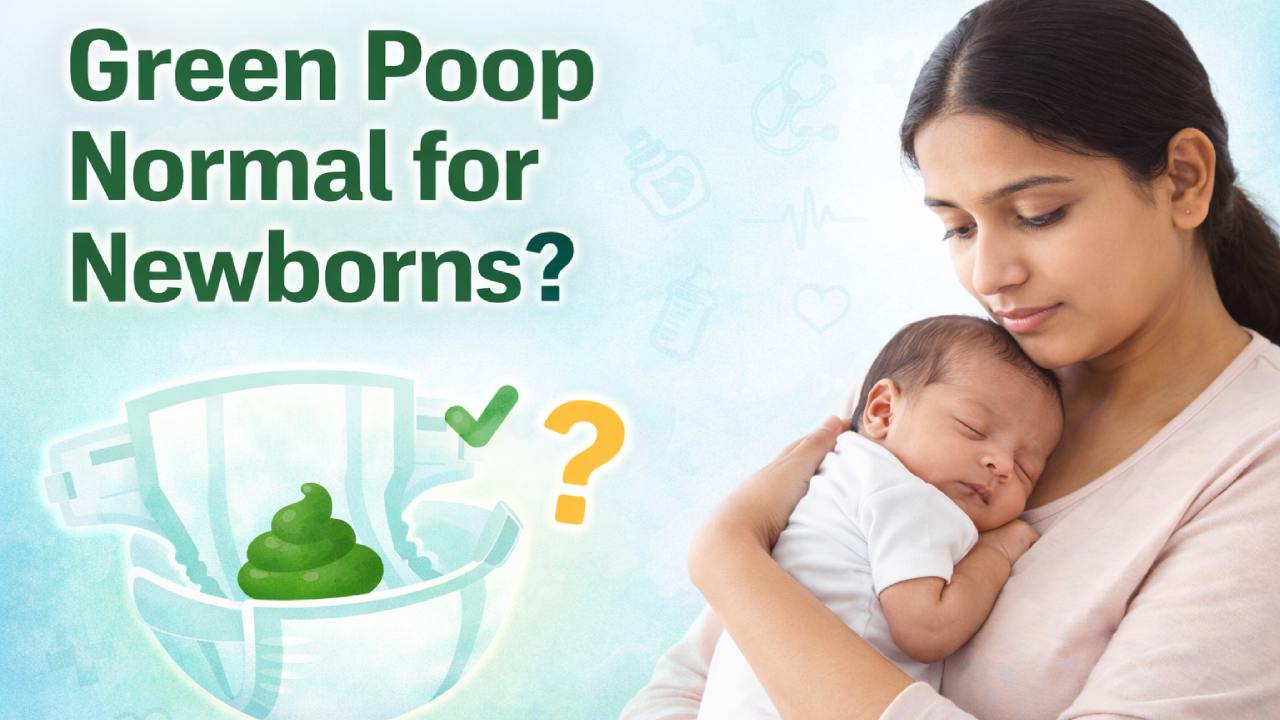Spotting Pneumonia in Newborns & Infants: Causes, Symptoms & Urgent Care Tips
Verified By Dr. Ankur Chawla | 25-Oct-2024
Pneumonia, a lung infection, can be particularly dangerous for newborns and infants. Their delicate respiratory systems are more susceptible to infection, making it essential to recognize the signs and seek prompt medical attention.
In this article, we will explore the causes, symptoms, and preventive measures of pneumonia in newborns & small children. We’ll also provide insights from Dr. Ankur Chawla, Consultant Pediatrician at Kailash Hospital & Heart Institute, on how parents can protect their babies and when to seek help from a pediatrician.
What is Pneumonia in Infants?
Pneumonia occurs when an infection inflames the air sacs in an infant's lungs, filling them with fluid or pus, which makes breathing difficult. This infection can be a result of various pathogens and is sometimes accompanied by other respiratory illnesses such as bronchiolitis, an infection that impacts the small airways in the lungs of infants.
“Untreated pneumonia in newborns & infants can result in severe respiratory distress and serious complications,” explains Dr. Ankur Chawla. “Babies have weaker immune systems, allowing infections to spread rapidly within their small lungs.”
Common Causes of Pneumonia in Infants
Pneumonia can be caused by several pathogens:
- Bacterial Infections: Wide varieties of bacteria are common causes of bacterial pneumonia in babies. These bacteria can be passed from the mother to the baby during delivery or from older children & adults suffering from respiratory illness.
- Viral Infections: Respiratory syncytial virus (RSV) is a common virus that can cause pneumonia in newborns & infants. Other viruses like the influenza virus can also infect infants’ respiratory systems.
- Fungal Infections: While less common, fungal infections can also cause pneumonia, especially in premature infants or those with weakened immune systems.
- Aspiration Pneumonia: If an infant inhales fluids during birth, this can lead to aspiration pneumonia, a condition where the foreign material in the lungs causes infection.
“Identifying the cause of pneumonia is crucial for effective treatment,” Dr. Chawla notes. “Bacterial infections may require antibiotics, whereas viral pneumonia calls for a different approach.”
Infant Pneumonia Symptoms: What to Watch For
Recognizing the signs of pneumonia early is vital. Babies cannot communicate their discomfort, so observing changes in behavior, breathing patterns, feeding patterns and appearance can alert parents to potential health issues. Key symptoms include:
- Rapid Breathing: If your baby’s breathing is noticeably fast or labored, this could be a sign of pneumonia. Infants normally breathe faster than adults, but any increase beyond 60 breaths per minute should be checked.
- Grunting or Wheezing Sounds: Grunting with each breath or a persistent wheeze could indicate respiratory distress associated with pneumonia or bronchiolitis in infants.
- Chest Retractions: When the muscles around the ribs appear to sink in during breathing, this is known as chest retractions and is a sign of difficulty breathing.
- Fever or Low Body Temperature: A sudden spike in temperature may indicate infection. Some newborns or infants may experience lower-than-normal temperatures if they are very young or premature.
- Poor Feeding and Lethargy: If an infant is unusually tired, sleeps more than normal, or refuses to feed, it may signal an underlying illness, including pneumonia.
- Bluish Skin (Cyanosis): A bluish tint to the skin, lips, or fingertips suggests a lack of oxygen, which can happen if the lungs aren’t functioning properly.
"As parents, it’s essential to look out for these symptoms and act quickly," advises Dr. Chawla. "Babies are at high risk for complications, so timely medical attention is crucial."
Also read: When to Worry about a Child's Nose Bleed?
How Pneumonia in Infants Differs from Common Colds
Pneumonia symptoms in babies can sometimes be mistaken for a common cold, but there are important differences. “Common cold symptoms in newborns & infants may include mild cough, nasal congestion, or sneezing,” says Dr. Chawla. “However, if symptoms progress to labored breathing, high fever, or grunting, it is likely a sign of a more serious condition.”
Unlike a common cold, which typically resolves on its own, pneumonia requires medical treatment to prevent severe complications. If parents notice any signs of worsening breathing difficulty or persistent symptoms, they should consult a pediatrician immediately.
Diagnosis and Treatment of Infant Pneumonia
To diagnose pneumonia, a pediatrician may conduct a physical exam, listen to the baby’s breathing, and request a chest X-ray to confirm the presence of infection. Blood tests may also be ordered to identify the specific type of infection causing the symptoms.
Treatment Options
- Antibiotics for Bacterial Pneumonia: For bacterial pneumonia, antibiotics are the primary treatment and may be administered intravenously for infants.
- Antiviral or Supportive Care for Viral Pneumonia: Viral pneumonia typically requires supportive care, including oxygen therapy, and may need hospitalization for close monitoring.
- Supplemental Oxygen and Hydration: In cases of severe pneumonia, oxygen therapy and intravenous fluids may be necessary to help with breathing and hydration.
- Close Monitoring and Follow-Up: Dr. Chawla emphasizes the importance of ongoing monitoring, “Once discharged, regular follow-ups with the pediatrician ensure that the infant is recovering well and not experiencing any lingering complications.”
Preventing Pneumonia in Babies: What Parents Can Do
While not all cases of pneumonia are preventable, there are steps parents can take to reduce the risk:
- Hand Hygiene: Practicing good hand hygiene by washing hands before handling the baby is essential to reduce the spread of germs.
- Avoiding Crowded Places: Limiting exposure to crowded public places, especially during the first few months, can reduce the risk of catching infections.
- Vaccinations: Following the vaccination schedule and ensuring that family members are also vaccinated against illnesses like flu can provide an extra layer of protection.
- Minimizing Contact with Sick Individuals: Keep the newborn & infants away from anyone who is unwell, as even a common cold can lead to severe respiratory issues in infants.
“Simple hygiene practices and limiting exposure to sick individuals can make a big difference in protecting your baby from infections,” suggests Dr. Chawla.
Also read: How to Handle Anxiety in Children?
When to Seek Medical Help
If you suspect that your infants is experiencing any symptoms associated with pneumonia or if their condition seems to be worsening, it’s essential to seek medical help immediately. “Timely intervention is key in managing pneumonia and ensuring a positive outcome for babies,” emphasizes Dr. Chawla.
Parents should never hesitate to reach out to a pediatrician if they notice any unusual signs. Pneumonia in infants can progress quickly, so getting the appropriate treatment in a hospital setting like Kailash Hospital & Heart Institute is critical.
Pneumonia is a serious condition, but with awareness, prevention, and timely medical intervention, parents can help protect their infants from severe complications. Recognizing the signs early, practicing preventive care, and consulting experienced pediatricians like Dr. Ankur Chawla at Kailash Hospital & Heart Institute, Noida, can ensure that infants receive the best possible care.
Dr. Chawla encourages all parents to stay informed and vigilant about their baby's health during the vulnerable first few months of life. “Recognizing the signs and causes of pneumonia in small babies, along with knowing when to seek medical help, can greatly impact a child’s health and recovery,” he advises.
By taking these preventive steps and maintaining close communication with healthcare providers, parents can help their babies grow and thrive with reduced health risks.



 +91-9711918451
+91-9711918451
 international.marketing@kailashhealthcare.com
international.marketing@kailashhealthcare.com







